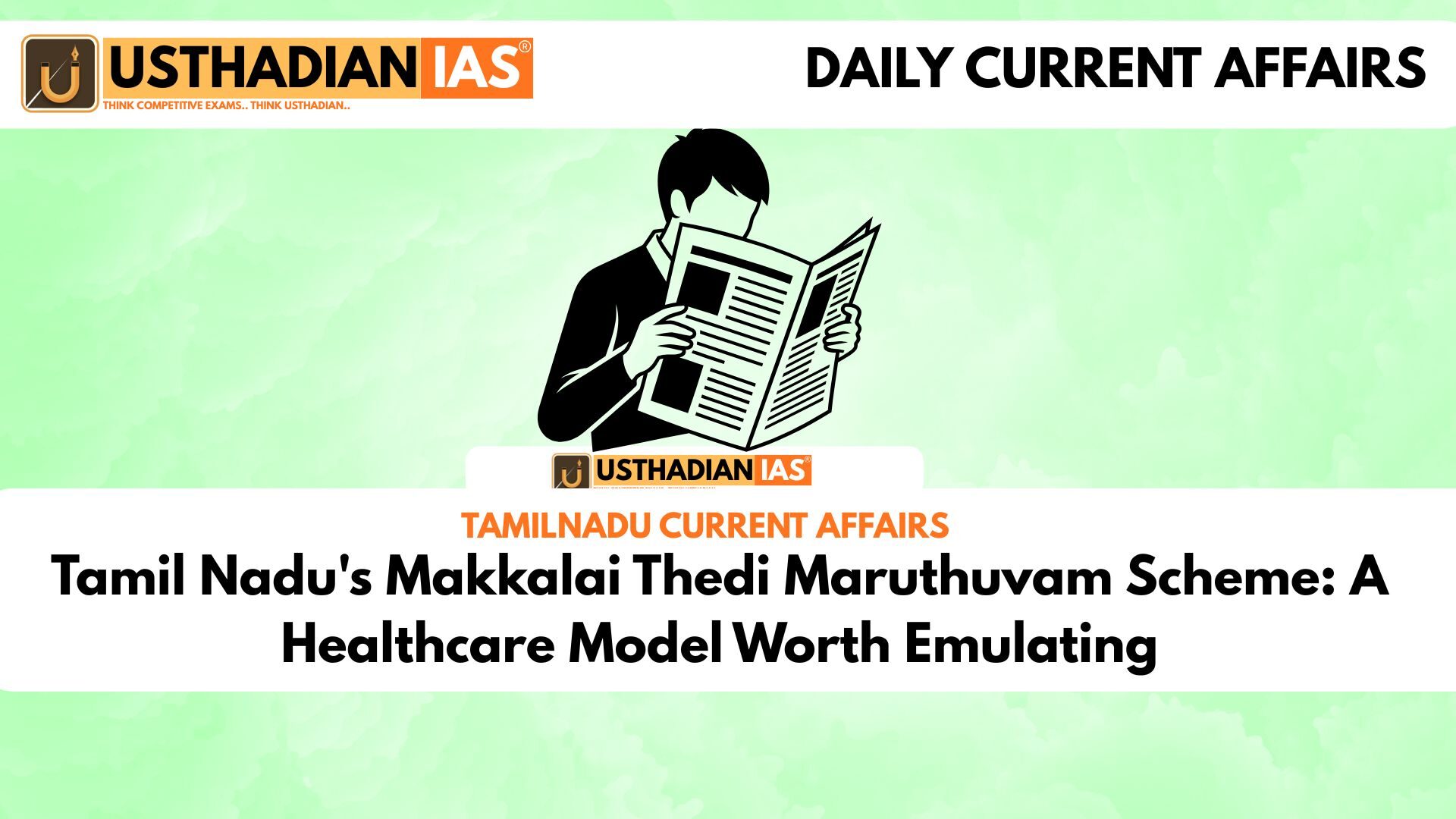Transforming Healthcare Access in Tamil Nadu
Tamil Nadu’s Makkalai Thedi Maruthuvam Scheme: A Healthcare Model Worth Emulating: Tamil Nadu’s Makkalai Thedi Maruthuvam (MTM) scheme has been changing the way healthcare is delivered—literally at the doorsteps of people. This state-run program, which translates to “Healthcare at the doorstep,” focuses on reaching patients in rural and remote areas with services for hypertension, diabetes, palliative care, and physiotherapy. What makes this scheme stand out is its home-based delivery model, especially through Women Health Volunteers (WHVs). The numbers speak for themselves: over 1.13 crore people with hypertension and 54 lakh diabetics have benefitted as first-time users alone.
Boosting NCD Control with Real Results
The impact of MTM is clearly seen in the results from the STEPS II Survey (2023–24), a WHO-backed study implemented by ICMR’s National Institute of Epidemiology (NIE). According to the findings, the control rate of hypertension improved significantly from 7.3% in 2019-20 (STEPS I) to 17% in 2023-24. Similarly, diabetes management also saw a jump—from 10.8% to 16.7%. These improvements are not just statistics—they reflect healthier lives and fewer complications for lakhs of Tamil Nadu citizens.
Real-Life Benefits: Treatment at Your Door
Think of an elderly person in a remote village who struggles to travel to a clinic. For them, a WHV showing up at their home with essential medicines for blood pressure is not just convenient—it’s life-saving. The survey shows that 37.7% of hypertension patients and 33.6% of diabetic patients received medicines through WHVs. This model of care not only reduces hospital congestion but also improves treatment adherence, especially among the elderly and immobile.
Government Health Services Gaining Trust
Another major achievement is the increase in public trust towards government healthcare. The number of hypertension patients seeking treatment from government facilities rose from 45.5% in STEPS I to 62.4% in STEPS II. Likewise, 54.1% of diabetic patients in 2023-24 preferred the government sector—up from 33.9% in 2019-20. This shift signals rising confidence in public health infrastructure, thanks to schemes like MTM.
Static GK Snapshot for Exams
Tamil Nadu’s Makkalai Thedi Maruthuvam Scheme: A Healthcare Model Worth Emulating:
| Scheme/Survey | Details |
| Makkalai Thedi Maruthuvam (MTM) | Tamil Nadu doorstep healthcare scheme launched in 2021 |
| Major Services Covered | Hypertension, Diabetes, Palliative Care, Physiotherapy |
| Key Implementing Body | Tamil Nadu Health & Family Welfare Department |
| Survey Agency | ICMR – National Institute of Epidemiology (NIE), Chennai |
| WHO STEPS Approach | STEPwise approach to Surveillance for NCD risk factors |
| MTM Highlight | Home drug delivery by Women Health Volunteers (WHVs) |
| First-Time Hypertension Beneficiaries | 1.13 crore+ |
| First-Time Diabetes Beneficiaries | 54.19 lakh |








